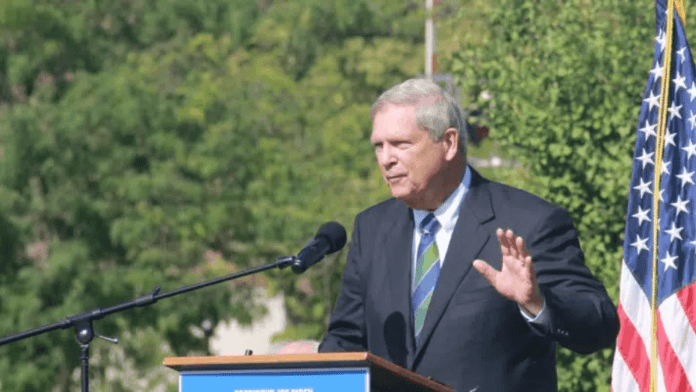News In Brief:
– The Biden-Harris Administration allocates $124 million to renewable energy and fertiliser production projects across 44 states, aiming to lower energy costs, create jobs, and bolster local economies.
– Through initiatives like the Rural Energy for America Program and Fertilizer Production Expansion Program, the investment directly benefits farmers and rural small businesses, promoting sustainability and economic resilience
The Biden-Harris Administration’s commitment to bolstering America’s agricultural sector received a significant boost today with the announcement of a $124 million investment in renewable energy and fertiliser production projects across 44 states. Spearheaded by the US Department of Agriculture (USDA), this initiative aims to lower energy costs, create new income streams, and foster job growth for farmers, ranchers, and rural small businesses.
During a visit to the University of Nebraska Omaha, USDA Secretary Tom Vilsack emphasised the administration’s dedication to empowering rural communities nationwide. The majority of the funding stems from President Biden’s Inflation Reduction Act, representing the largest-ever investment in combating the climate crisis through programs like the Rural Energy for America Program. Additionally, the Fertilizer Production Expansion Program contributes to advancing the administration’s “Investing in America” agenda.
The investment directly impacts local farmers by providing access to renewable energy systems and domestic fertiliser production. Through the Rural Energy for America Program (REAP), over $120 million will support 541 projects, enabling agricultural producers and rural small business owners to embrace clean energy solutions. These initiatives not only lower energy costs but also enhance sustainability efforts, crucial for the long-term viability of farming operations.
Examples of clean energy innovations in rural communities
Projects like Darr Grain’s installation of wind turbines in Nebraska showcase the tangible benefits for local businesses, saving approximately $9,700 annually in electrical costs. Similarly, Moorit Hill Farm in Maine will harness solar energy to meet 100% of its energy needs, equivalent to powering nearly five homes. These investments not only promote environmental stewardship but also contribute to economic resilience within rural communities.
Moreover, USDA’s commitment to supporting domestic fertiliser production, exemplified by the Fertilizer Production Expansion Program (FPEP), underscores the importance of self-reliance in agricultural supply chains. Bluestem Systems’ forthcoming facilities in Iowa and Nebraska, funded by a nearly $4 million grant, signify advancements in fertiliser production technology, benefiting 1,500 producers annually.



